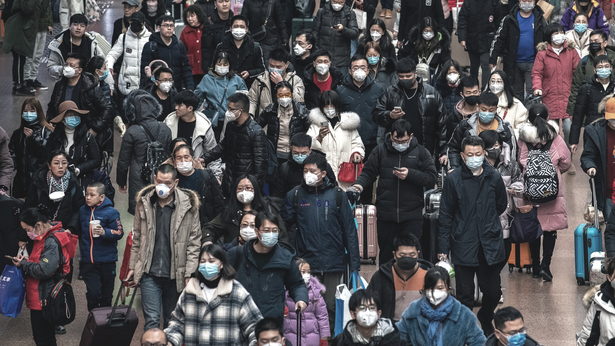
As part of TBI’s continuing coverage of the impact of Covid-19 on the content business, we speak to Harriet Armston-Clarke, director of TVF International, who discusses how the UK-based factual distributor has rapidly innovated to deal with the impact of the pandemic.
What a difference a week makes. Seven days ago, TVF International was in the same Georgian Townhouse in Islington that we had operated out of for some 35 years.
Today, the company is scattered across the capital and its surrounds, operating out of more than 25 separate kitchens and living rooms. Where once we chose from “kind regards”, “best wishes”, or a simple “thanks”, now Covid-19 has mutated all email valedictions to “stay safe”.
As filming is suspended, dubbing houses close their doors and schedulers puzzle out months of airtime with no prospect of live sport, distributors are rising to the challenge, coming up with innovative strategies to help international channels plug scheduling gaps and generating much needed income for independent producers who are, in many ways, on the frontline of a crisis.
Expanded interests & box-set thinking
The appetite for Coronavirus-related content is growing in step with increased measures to contain it. This interest is by no means limited to strands and channels usually engaged in the acquisition of documentaries and factual programming – indeed, we have licensed documentaries to sports channels and buyers who usually come to us for arts and cultural programming.
We now represent and are licensing three different documentaries to broadcasters around the globe: Coronavirus: The Silent Killer (1×48), an investigation from within China into the causes of the outbreak and its rapid spread; Stronger: A Battle Against Covid-19 (1×44), an in-depth look at Singapore’s hugely successful containment of the virus; and Coronavirus: Race Against the Pandemic (1×48), a longer-term analysis of the measures that can be taken to beat the virus.
Given that the virus is going nowhere any time soon, we expect to add more to our catalogue across the coming weeks as the story continues to develop, many of them coming out of areas of Asia where people are slowly returning to the office and beginning to resume something resembling ‘normal’ life after months of lock-down.
Single documentaries and mini-series do not fill channel schedules, however. We will not be the only distributors to be putting together box sets and channel strands of volume content for channels whose schedules are suffering from production delays and the cancellation of live sports. But with dubbing houses closed for the foreseeable future, we have had to get creative to find content that is not only suitable but is also available in local languages.
Innovating with networks
One way that we have been doing this is by connecting broadcasters who have already created local language versions of programmes with other channels in the territory who are in urgent need of content that is already localized for their market. The original broadcaster makes additional revenue and the new one accesses programming in the languages it requires. Clearly in times of adversity we all have to pull together.
Another focus of the TVF team is in the educational space. As a distributor with specialist-factual at our core, much of our catalogue aligns with school and university curricula; TVF is in talks with a numerous pubcasters to curate strands of edu-taining content such Eco-Eye: Sustainable Solutions (30 x 25), Innovation Nation (156 x 22) and Did I Mention Invention (34 x 20) alongside more advanced philosophical debates from The Institute of Art And Ideas (800 x 45) for the millions of children and young adults whose schooling has been disrupted and who will be cooped up at home for the foreseeable future.
Archived thinking& signing off
With shooting out of the question, archive companies like Getty and Newsflare are reporting huge up-ticks in requests from producers looking to give older programmes a facelift or create new programmes using existing footage.
This is comfortable territory for distributors, who are having daily conversations with buyers anyway and have long been guiding productions from the sidelines with their eyes firmly fixed on the international long-tail. In the months before Coronavirus, we reversioned Dutch pubcaster NPO’s series Sign Of The Times (5 x 45) that followed the world’s leading women fighting for human rights and Bulgarian hit travel series No Luggage (84 x 22) to sit alongside Thai series The Snake Master (26 x 45), the Brazilian answer to Bondi Rescue, Rio Rescue (16 x 23), and Pixcom’s male-skewing series Winter Road Warriors (28 x 22).
And just this week from our rapidly-assembled home offices, we made final tweaks to just this sort of production: Ocean Wild – a 4k underwater wildlife series filmed in Japan and co-produced by TVF International.
We reviewed and signed off on the final picture lock via Zoom, and directed a voiceover recording over Skype so that we could release the episode on our (Not)MIPTV Slate at the beginning of April. With many more projects in the pipeline, reversioning existing content for our international clients is going to continue to be a key area for us in the coming months.
There is no doubt we have a long and difficult road ahead as our industry dresses from the waist up and overcomes the various technical home working hurdles. But who knows what other innovations are around the corner for plucky distributors who think outside the box and are able to do things differently in these very different times. I for one am feeling hopeful.
For now though, stay safe.

